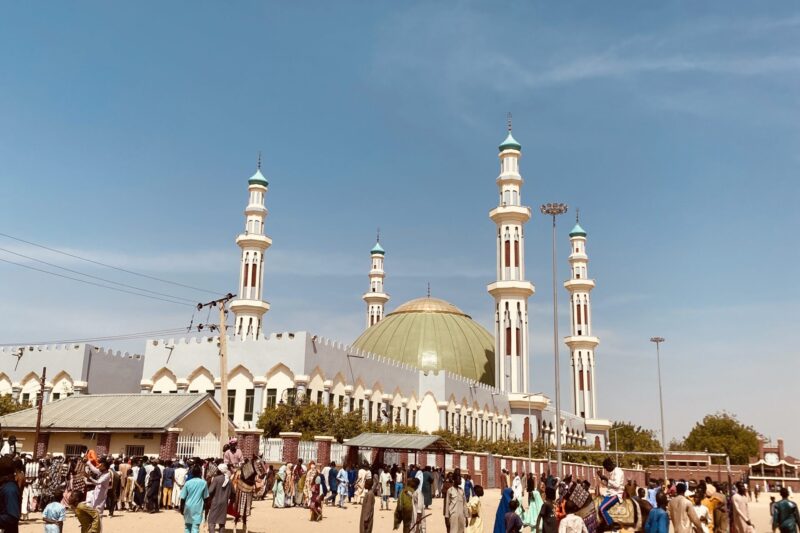Just 24 hours after the Chad Basin Development Authority (CBDA) opened the gates of the Alau Dam on Tuesday, August 17, a child drowned in the swirling waters of the Ngadda River.
Now residents living close to the river are terrified more children could drown. They also fear losing their homes, farms and other personal belongings.
The CBDA sent a cautionary statement to residents of the Maiduguri Metropolis and its environs warning them to take extra care because the gates of the dam would be opened to release excess water.
Abba Garba, the authority’s managing director, advised those living along the shores of the river to take steps to avert danger to lives and property.
Bintu Fari, who lives on the shores of the river, told RNI that the child drowned even though residents were doing their best to keep children away from the water to ensure their safety.
She said that every year when the gates of dam were opened many houses on the river’s shore were flooded.
“We dare not sleep at night because we are scared of water flooding the house. So, even though we are live in poverty, we try to get money to rent houses in other areas for at least three to four months while the river overflows. We go back to the house when the river runs dry,” she said.
Baba Ahmed said if her family was not so poor they would never risk their lives by staying so close to the river.
She said she had saved money so she could buy her land. Six years ago, her husband was killed in an attack by the Jamā’at Ahl as-Sunnah lid-Da’way Wa’l-Jihād (JAS), more commonly referred to as Boko Haram. “I was confused and devastated but I managed to get money to buy the land.”
Ahmed said she was destitute and often had to beg for food for herself and two children.
“We have pleaded with the government to help us because we have nowhere else to go and we cannot afford to rent a house in another area.”
Farmers living close to the river said they were also affected by the flooding.
One told RNI that every year when the gates of the dam were opened the excess water washed their farms away.
“I started farming here when the land became available during the insurgency. Even though the water is good for irrigation, we wish it could be contained so that it does not destroy our farms. Every year at this time we lose our land and crops and have to start from the beginning again.”
In the statement from the CBDA, it asked residents “to cooperate”.
Ngadda River passes through populated areas of the Maiduguri metropolis and the Jere Local Government Area.
In 1994, several wards in Maiduguri were flooded when persistent heavy rains burst Alau Dam.
According to a report in 1994 by ReliefWeb, the information service of the United Nations Office for the Coordination of Humanitarian Affairs (OCHA), the burst dam – which is 20km from Maiduguri – caused severe flooding in several towns.
It said Maiduguri was the most severely affected by the flooding which destroyed a large number of mud houses and washed away almost all the personal belongings of the stricken residents.
Paved roads were destroyed, cutting critical communication routes. Poultry and livestock production, farmlands and planted crops were seriously damaged.
The report said the damage was the most serious among the poorest segment of Maiduguri’s population, whose economic means had been devastated.
Contaminated water was a threat to the health situation because there was an immediate shortage of safe drinking water.
In addition to Borno, flooding affected other states in northern Nigeria, including Kebbi, Kaduna, Sokoto, Katsina, Kogi, Kwara and Plateau. Neighbouring Cameroon reported a severe landslide.
ReliefWeb said a large number of people were displaced and left homeless; seven were reported dead. Most of the eastern part of Maiduguri was covered in water and damage to crops and property amounted to several millions of naira.








